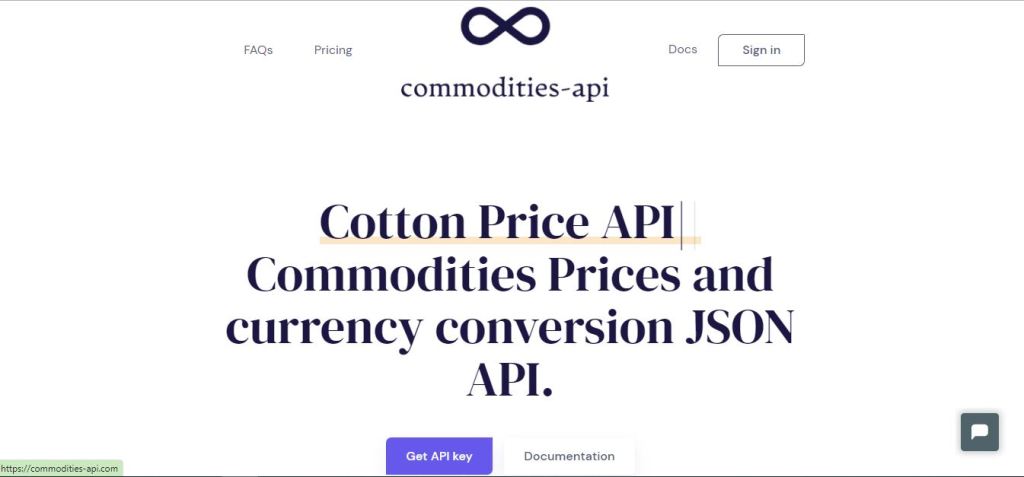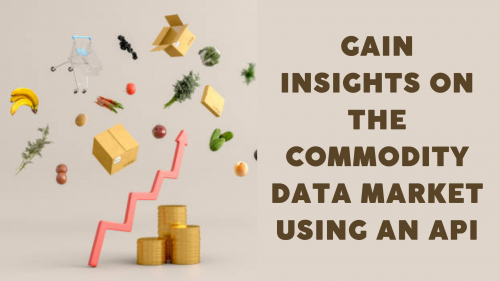Do you want to get insights on Market Data? Get an commodities prices API to help you!
Market data in finance refers to the price and other associated data for a financial instrument that is published by a trading venue such as a stock exchange. Market data provides traders and investors with the most recent price as well as historical trends for assets such as stocks, bonds, derivatives, and currencies.
The market data for a specific instrument would comprise the instrument’s identity and where it was traded, such as the ticker symbol and exchange code, as well as the most recent bid and ask price and the time of the last deal.
Other information such as volume traded, bid and offer sizes, and static data on the financial instrument that may have originated from a number of sources may also be included. A variety of financial data suppliers specialize in collecting, cleaning, compiling, and disseminating market data, and this has become the most frequent means for traders and investors to obtain market data.
Price data delivery from exchanges to users, such as traders, is very time-sensitive, requiring specialized technology built to manage the gathering and flow of enormous data streams to send the information to traders and investors. When trading systems are predicated on assessing data before others, such as in high-frequency trading, the speed at which market data is delivered can become essential.

The transmission of pricing data from exchanges to users is extremely time-sensitive. Ticker plants are specialized software and hardware systems designed to manage the gathering and throughput of enormous data streams, showing prices for traders and feeding automated trading systems quickly enough to catch opportunities before markets move. Historical market data is a form of time series data when it is saved.
The time gap in the delivery of real-time data is defined as latency; the shorter the latency, the faster the data transmission speed. Low latency refers to the processing of huge volumes of data with minimum delay. The advent of algorithmic and high frequency trading, as well as the demand for competitive trade performance, has increased rivalry for low latency data.
The difficulty of handling market data increased with the expansion in the number of issued securities, the number of exchanges, and the globalization of capital markets for market data consumers, which are largely financial institutions and industrial utilities supplying the capital markets.
Aside from the increasing volume of data, the ongoing growth of sophisticated derivatives and indexes, as well as new rules meant to reduce risk and safeguard markets and investors, have increased operational demands on market data management. For that, we recommended you the use of Commodities-API.
What Is Commodities-API?
Commodities-API is an online platform run by an API, which is a piece of computer software used to trade data on commodities including coffee, rice, oil, coal, and oil, among many others. You may also use a wide range of currencies from across the world.

How Does It Work?
Commodities-API is a very easy to use website; simply follow these procedures.
– To register, create an account on the website.
– Generate an API Key
– Look for commodities and currencies of interest.
– Request an API Call from the website system, and it will respond with an API response.
Is It A Secure Platform?
Security on the Commodities-API website is of the protocol type, which provides security via an encrypted link between a web server and a web browser. This type of security is used by many banking organizations.
Where Does The Information Come From?
Every minute, the Commodities-API program collects commodity pricing data from over 15 trustworthy data sources, including banks and financial data organizations, as well as the Central Bank.

